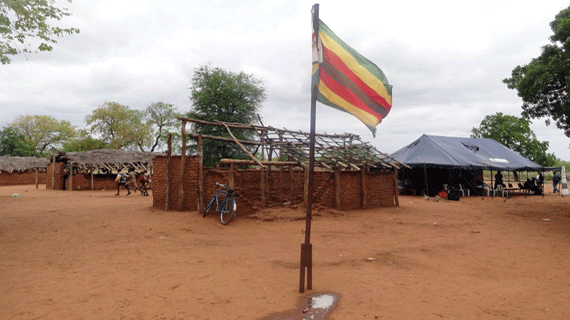
THE saying that “today’s children are tomorrow’s leaders” has lost its meaning in most parts of Zimbabwe given the prevalence of child labour nationwide.
 TATENDA CHITAGU
OWN CORRESPONDENT
TATENDA CHITAGU
OWN CORRESPONDENT
Although the government has put in place policies that protect children from abuse, extreme poverty exacerbated by the decade-long economic meltdown has seen a good number of the country’s children being forced into child labour.
Most affected children come from poor families with no source of income.
These children help contribute to the pool income of the family.
While other children sit in a warm, safe, clean classroom each day surrounded by all the material things they take for granted, children in Mugwagwa village under Chief Tsvovani, about 56km west of Chiredzi in Masvingo province barely have enough money for survival.
As a result, most of them have been forced to enter the workforce at the age of 10 simply to keep their families alive. They work in extremely unhealthy and unsafe conditions, and in jobs not fit at all for children.
Added to this unhappy reality, these children in Mugwagwa miss out on having a normal childhood since they are forced to work from such young ages and don’t receive the education they should.
- Chamisa under fire over US$120K donation
- Mavhunga puts DeMbare into Chibuku quarterfinals
- Pension funds bet on Cabora Bassa oilfields
- Councils defy govt fire tender directive
Keep Reading
Even though the right to education is central to policy, many poor families are unable to afford school fees.
The family then forces young girls into marriages or sends them to work to contribute to the household’s income.
The Coalition Against Child Labour In Zimbabwe (Caclaz) says besides lack of money, most children in Mugwagwa village are dropping out of school due to poor learning conditions.
Uswaushava Primary School in Mugwagwa enrols about 610 pupils, but its dilapidated mud structures and grass thatching is in such a deplorable state that children are exposed to the elements when in class resulting in most families withdrawing their children from school to help them put food on the table.
Caclaz national co-ordinator Pascal Masocha said most children in Ward 16 under which Mugwagwa falls had dropped out of school.
He said Cacalz had so far returned 550 children who had dropped out of school since 2007.
“We have children who shun schooling because of such pathetic conditions at schools here and have turned into child labourers, especially those who have parents that are new farmers — some in the sugar plantations,” said Masocha.
He expressed concern that about 5% of the pupils they managed to help get out of child labour had returned to their “jobs”.
“Some of the children default and go back to be child labour so we decided to tackle the problem of school dropouts holistically by capacitating the schools so that they get a friendly environment, hence our chipping in to help building the classroom block here,” he said.
Masocha said Chiredzi topped in primary school dropouts who went into child labour or child marriages in a baseline survey of 2010.
“Our baseline survey revealed that Chiredzi had the highest cases of child labour in the country, hence our intervention.”
Between 36% and 40% of children aged between five and 18 are child labourers, particularly in sugar plantations in Chiredzi, according to the baseline survey.
Chiredzi North child MP Melody Tapera from Mkwasine High School urged parents and the government to encourage children to go to school by providing proper facilities that enhance learning.
“We are the future and it’s shocking to know that my colleagues are failing to come to school because of the bad conditions at schools. It’s also shocking to note that they are opting for menial jobs and child marriages when they are supposed to be in school.
“We should all strive to end child labour and under-age forced marriages,” Tapera said.
Acting Masvingo provincial education director Fadzai Jirivengwa said the government was doing all it could to assist satellite schools. “These are satellite schools, but we have no satellite pupils. As government, we also assist in building the schools. We have building grants which we give mainly to such schools,” said Jirivengwa.
“We have called for their infrastructural assessment and we have a budget for the province for the 1 300 schools, but the resources are insufficient for all the schools, although we have a bias towards satellite schools,” she said.
Jirivengwa said the responsible authority under which the school falls should also help to develop the school.
“Uswaushava falls under Chiredzi Rural District Council and I’m sure the local authority also knows the problems there. It is not our prerogative alone; we need an all-stakeholders approach,” she said.











